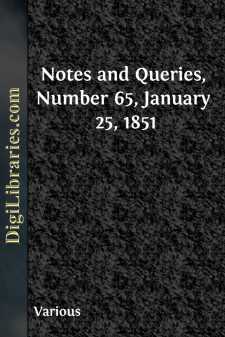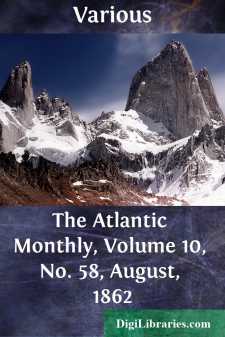Categories
- Antiques & Collectibles 13
- Architecture 36
- Art 48
- Bibles 22
- Biography & Autobiography 816
- Body, Mind & Spirit 145
- Business & Economics 28
- Children's Books 18
- Children's Fiction 14
- Computers 4
- Cooking 94
- Crafts & Hobbies 4
- Drama 346
- Education 58
- Family & Relationships 59
- Fiction 11831
- Foreign Language Study 3
- Games 19
- Gardening 17
- Health & Fitness 34
- History 1378
- House & Home 1
- Humor 147
- Juvenile Fiction 1873
- Juvenile Nonfiction 202
- Language Arts & Disciplines 89
- Law 16
- Literary Collections 686
- Literary Criticism 179
- Mathematics 13
- Medical 41
- Music 40
- Nature 179
- Non-Classifiable 1768
- Performing Arts 7
- Periodicals 1453
- Philosophy 66
- Photography 2
- Poetry 897
- Political Science 203
- Psychology 45
- Reference 154
- Religion 516
- Science 126
- Self-Help 86
- Social Science 82
- Sports & Recreation 34
- Study Aids 3
- Technology & Engineering 59
- Transportation 23
- Travel 463
- True Crime 29
Our website is made possible by displaying online advertisements to our visitors.
Please consider supporting us by disabling your ad blocker.
Notes and Queries, Number 65, January 25, 1851
by: Various
Categories:
Description:
Excerpt
NOTES.
TRADITIONAL ENGLISH BALLADS.
The task of gathering old traditionary song is surely a pleasant and a lightsome one. Albeit the harvest has been plentiful and the gleaners many, still a stray sheaf may occasionally be found worth the having. But we must be careful not to "pick up a straw."
One of your corespondents recommends, as an addition to the value of your pages, the careful getting together of those numerous traditional ballads that are still sometimes to be met with, floating about various parts of the country. This advice is by no means to be disregarded, but I wish to point out the necessity of the contributors to the undertaking knowing something about ballad literature. An acquaintance with the ordinary published collections, at least, cannot be dispensed with. Without this knowledge we should be only multiplying copies of worthless trifles, or reprinting ballads that had already appeared in print.
The traditional copies of old black-letter ballads are, in almost all cases (as may easily be seen by comparison), much the worse for wear. As a proof of this I refer the curious in these matters to a volume of Traditional Versions of Old Ballads, collected by Mr. Peter Buchan, and edited by Mr. Dixon for the Percy Society. The Rev. Mr. Dyce pronounces this "a volume of forgeries;" but, acquitting poor Buchan (of whom more anon) of any intention to deceive, it is, to say the least of it, a volume of rubbish; inasmuch as the ballads are all worthless modern versions of what had appeared "centuries ago" in their genuine shape. Had these ballads not existed in print, we should have been glad of them in any form; but, in the present case, the publication of such a book (more especially by a learned society) is a positive nuisance.
Another work which I cannot refrain from noticing, called by one of the reviewers "A valuable contribution to our stock of ballad literature"? is Mr. Frederick Sheldon's Minstrelsy of the English Border. The preface to this volume promises much, as may be seen by the following passage:—
"It is now upwards of forty years since Sir Walter Scott published his Border Minstrelsy, and during his 'raids,' as he facetiously termed his excursions of discovery in Liddesdale, Teviotdale, Tyndale, and the Merse, very few ballads of any note or originality could possibly escape his enthusiastic inquiry; for, to his love of ballad literature, he added the patience and research of a genuine antiquary. Yet, no doubt many ballads did escape, and still remain scattered up and down the country side, existing probably in the recollection of many a sun-browned shepherd, or the weather-beaten brains of ancient hinds, or 'eldern' women: or in the well-thumbed and nearly illegible leaves of some old book or pamphlet of songs, snugly resting on the 'pot-head,' or sharing their rest with the 'Great Ha' Bible,' Scott's Worthies, or Blind Harry's lines. The parish dominie or pastor of some obscure village, amid the many nooks and corners of the Borders, possesses, no doubt, treasures in the ballad-ware that would have gladdened the heart of a Ritson, a Percy, or a Surtees; in the libraries, too, of many an ancient descendant of a Border family, some black-lettered volume of ballads, doubtlessly slumbers in hallowed and unbroken dust."
This reads invitingly; the writer then proceeds:—
"From such sources I have obtained may of the ballads in the present collection....












